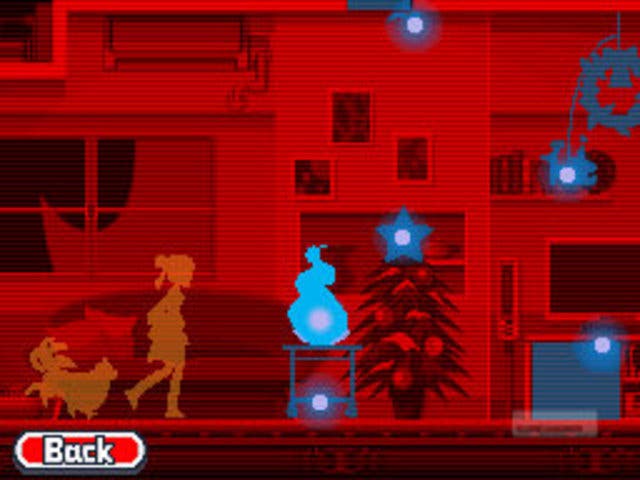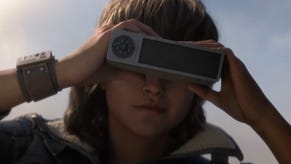Ghost Trick: Phantom Detective
Spooks you, sir.
"This desk lamp knows a whole lot more than he's telling me..."
With these words, spoken by a red-suited spirit with Jedward hair, any fear that Shu Takumi had exhausted his inspiration creating Phoenix Wright is dispelled. Ghost Trick: Phantom Detective is in most respects nothing like Ace Attorney, yet it's also an unmistakable continuation of that game's exuberant design and cock-eyed humour.
As the subtitle suggests, the hero of the tale is a ghost. We soon learn that his name is Sissel but, like so many videogame protagonists before him, he's lost his memory. At least he has an excuse: he's just been murdered and this apparently takes quite a toll on your mental faculties.
Waking up in the ghost world, Sissel is introduced to the special powers he can now use by a talking desk lamp called Ray. Crucially, within the ghost realm, time stands still and your soul is free to hop around the scenery, using glowing "cores" found in everyday items. Your reach is small, however, so a lot of your mental energy will be spent working out how to move or manipulate the environment to create pathways you can use to reach the places you need to go.
Also, as the game's title suggests, while inside these items and once time returns to normal, Sissel can make them perform a specific action or "trick". This is both how you explore your surroundings and how you tackle the game's many puzzles.
Also in your supernatural arsenal is the ability to travel from place to place using telephone lines, but this pales alongside your most impressive gift: time travel. Yes, should you slink your soul into the corpse of someone who died recently, you can rewind the clock and relive the four minutes prior to their demise. During this time, you can use your ghost tricks to try to avert their fate, leaving them alive and able to help you solve the mystery of who you are and why you're dead.

From this peculiar skill set, Takumi has crafted another confidently strange adventure, one part point-and-click to one part physics puzzler. As with Phoenix Wright, everything is relentlessly plot-driven so there's no fannying about with pointless obstacles just because the designer wanted to keep you busy. No, you're always working towards a new character, or another location, or some vital piece of information that will shed a sliver of light on the labyrinthine back-story while throwing up a dozen new questions as well.
Nothing is wasted. Objects discarded in one scene prove to be vital parts of a puzzle the next time you return. Characters that you thought were just there for some comedic colour turn out to be pivotal in the unravelling conspiracy. Judged purely from a structural point of view, Ghost Trick is something of a masterclass in interactive storytelling.
It also looks stunning. The Ace Attorney games had their manga-esque charms, and no doubt spawned a million message board avatars, but there's no getting away from the fact that they were hardly dynamic. Ghost Trick sees Takumi seriously upping his game where visuals are concerned, with lush, detailed scenery populated by beautifully animated characters.


.jpg?width=291&height=164&fit=crop&quality=80&format=jpg&auto=webp)
.jpg?width=291&height=164&fit=crop&quality=80&format=jpg&auto=webp)





